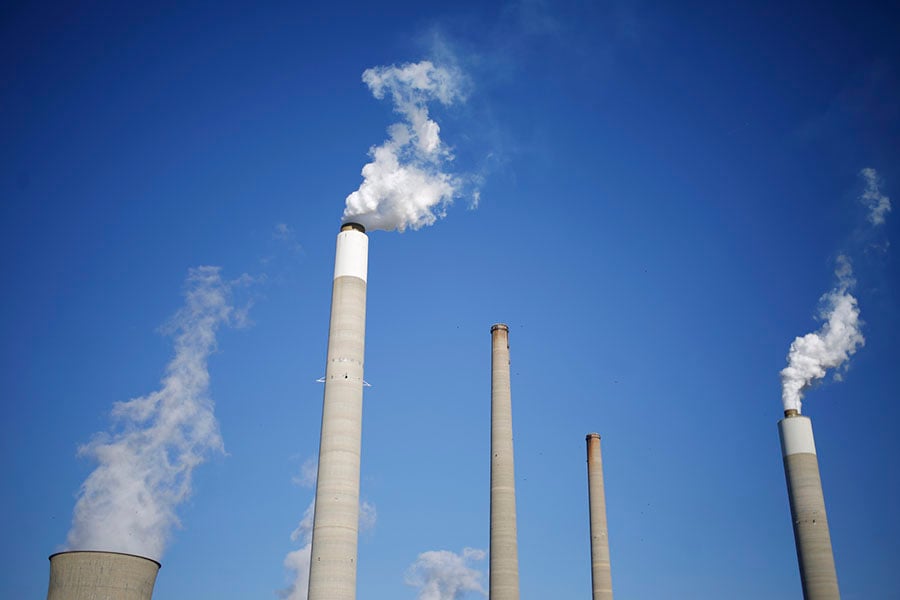Sustainable and impact investors are set to intensify their decades-long support for action on climate change on the heels of a recent report from the Intergovernmental Panel on Climate Change and the Fourth National Climate Assessment, issued by the U.S. government.
The U.S. government notes that unless urgent action is taken, climate change could shrink the U.S. economy by hundreds of billions of dollars every year in direct costs. Consistent with these findings, the IPCC's alarming (and unsurprising) conclusions are that urgent global economic transformation is needed to head off catastrophic damage to ecosystems, communities and economies beginning within a quarter century.
Many investors now understand that climate change is not merely an environmental issue but a material economic risk for long-term portfolios. However, investors should avoid a single-minded focus on climate change that ignores the relationship between ecosystems and human development.
The IPCC report stresses that an effective fight against climate change must include efforts to achieve sustainable development goals such as gender equality, the eradication of poverty, and food security.
In other words, how we fight climate change matters. Even the most optimistic scenarios will require substantial human adaptation to changed ecosystems, which will be especially challenging for poor or marginalized communities. Achieving sustainable development goals will strengthen the ability of poor communities to adapt to inevitable change and complement more direct efforts to mitigate climate change. However, these climate mitigation efforts by themselves may either help or hinder progress towards the sustainable development goals.
For example, mitigation strategies such as reforestation or biofuel development may reduce the land available for agriculture at a time when crop yields are already declining because of rising temperatures and water stress. The resulting increases in food prices have the effect of reducing buying power and possibly destabilizing civic and political cultures in developing countries.
Conversely, sustainable agricultural strategies, conducted with attention to social equity, can increase food security and counteract some of the negative effects of climate change on drinking water, biodiversity and income inequality, while reducing greenhouse gases associated with intensive farming practices.
(More: Investing to sustain innovation)
The empowerment of women can also support and reinforce both climate change mitigation and adaptation. Improving the quality of cookstoves available to poor women has the direct effect of reducing fuel use and deforestation. It also reduces asthma rates, which improves educational outcomes, and empowers women by freeing them from the labor-intensive "drudgery" of traditional cooking methods.
Numerous studies have also shown that as women gain education and empowerment, they earn more income and often choose to have fewer children, which is associated with reduced poverty and lower greenhouse gas emissions.
The introduction of modern technologies such as cookstoves into poor households would have an undeniably positive effect on quality of life for the poor and the resilience of their communities. However, the resulting increase in the demand for energy could undermine the intended climate benefits unless these strategies are accompanied by investments in renewable energy and energy efficiency — both of which come with additional benefits for income and energy access.
These and many other examples demonstrate the need for a holistic understanding of the connection between issues of climate and human development. Yet much of the financial capital flowing into climate mitigation today is motivated solely by opportunities for financial return arising from new public policies and the dramatic improvement in renewable energy technology.
(More: UBS Global Wealth Management will give ESG scores to funds)
These flows are important for achieving global scale for environmental solutions. However, a lack of attention to the social dimension of investment decisions may create a blind spot for unintended consequences that counteract environmental benefits.
The insights of sustainable and impact investment offer an essential complement to mainstream financial analysis. Integrating environmental, social and economic concerns into investment analyses can yield a more nuanced understanding of the complex interactions between climate and society. As part of this analysis, a commitment to stakeholder engagement will help investors incorporate the perspectives of local communities who will be impacted by investment decisions — because, as the IPCC report notes, climate change will impact people differently depending on geography, income and culture.
So what can investors who are concerned about climate change do? First, their investment policy statements should explicitly incorporate both climate change and key related social issues, such as gender equity, poverty, food security, and health. Second, the evaluation of investments or investment strategies intended to address climate change should integrate an analysis of their impact on broader sustainable development goals. Third, investors should use their voice to ask companies, governments and financial markets how climate change and sustainable development is incorporated into policy, planning and performance measurement.
An effective response to climate change will require the mobilization of every resource available to society, including governments, business, and civil society. Given the unique power of financial markets, investors can contribute to a long-term solution or exacerbate existing problems. Sustainable and impact investors have an opportunity to influence the outcome, if they choose to take it.
(More: Use of sustainable-investing strategies in U.S. assets increases 38%)
John Wilson is head of research and corporate governance at Cornerstone Capital Group.







